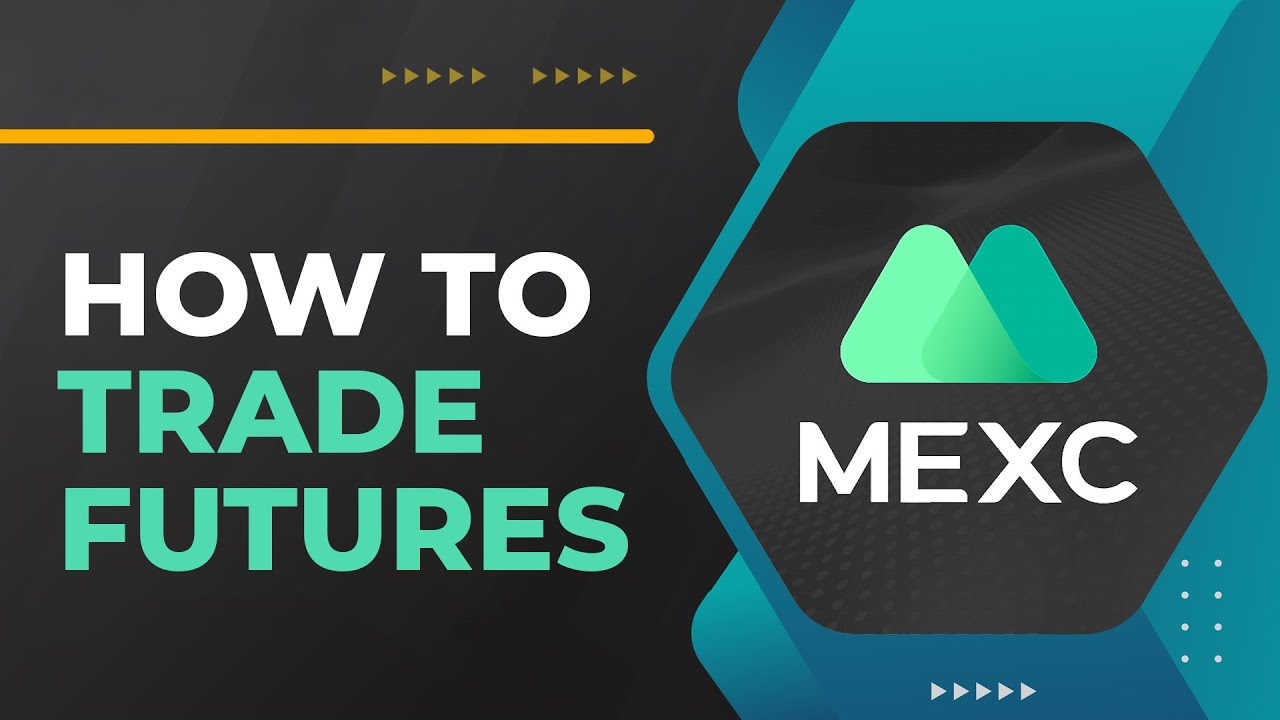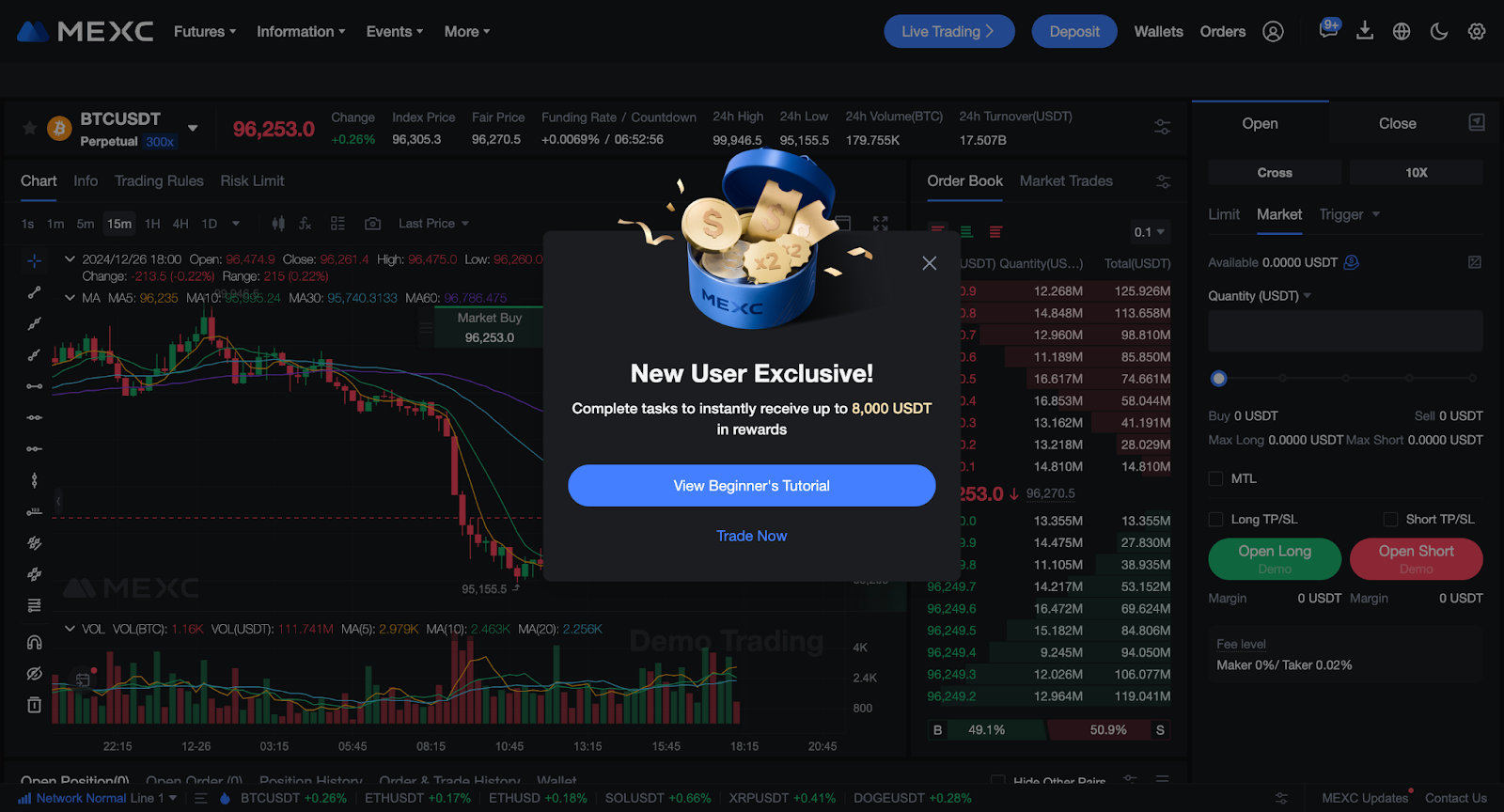
In the ever-evolving world of cryptocurrency trading, MEXC Futures has emerged as a significant player, providing traders with innovative tools and features to navigate the complexities of futures contracts. This article will explore the ins and outs of MEXC Futures, including its features, fee structure, APIs, calculators, and trading strategies.
What is MEXC?
MEXC, formerly MXC, is a prominent global cryptocurrency exchange that has gained significant traction in the digital asset trading landscape since its launch in 2018. Headquartered in Singapore, MEXC was established to provide a secure and efficient trading platform for cryptocurrency enthusiasts and investors worldwide. The exchange offers a comprehensive suite of services tailored to meet the diverse needs of its users, including spot trading, margin trading, and, notably, MEXC Futures.

One of the key features that sets MEXC apart from other exchanges is its user-friendly interface, which is designed to accommodate both novice traders and experienced investors. The platform provides an intuitive trading experience, allowing users to navigate seamlessly through various trading options and tools. MEXC supports a wide array of cryptocurrencies, including popular assets like Bitcoin (BTC), Ethereum (ETH), and numerous altcoins, enabling traders to diversify their portfolios effectively.
How Do Futures Work?
Futures contracts allow traders to set the price of an asset specified in the contract. This asset can include commonly traded commodities such as oil, gold, silver, corn, sugar, and cotton. The underlying asset may also be stocks, currency pairs, cryptocurrencies, and treasury bonds.
A futures contract locks in the price of any of these assets for a future date. A standard futures contract has an expiration date, also known as the settlement price and fixed price. The expiration date or month is typically used to identify the futures contract. For instance, corn futures that expire in January are referred to as January corn futures.
As the buyer of a futures contract, you will be obligated to own the commodity or asset when the contract expires. This ownership can be settled in cash and does not always require physical possession of the asset. It is important to note that buyers can sell their futures contracts to others, thereby relieving themselves of the contractual obligation.
Understanding MEXC Futures
MEXC Futures allows traders to enter into contracts to buy or sell cryptocurrencies at predetermined prices on specified future dates. This type of trading provides the ability to leverage positions, which can amplify potential profits but also increase risks. MEXC Futures supports various cryptocurrencies, offering traders flexibility in their trading strategies.
Key Features of MEXC Futures:
- High Leverage: One of the standout features of MEXC Futures is the high leverage it offers, enabling traders to control larger positions with a smaller amount of capital.
- Diverse Contract Types: Traders can choose between perpetual contracts and fixed-date contracts, allowing them to tailor their trading strategies according to market conditions.
- User-Friendly Interface: The MEXC platform is designed to be intuitive, making it easy for users to navigate and execute trades efficiently.
- Advanced Trading Tools: MEXC Futures provides various tools such as real-time charts, technical indicators, and multiple order types to enhance the trading experience.
MEXC Futures Fees

Understanding the fee structure is essential for any trader engaging in MEXC Futures. The fees associated with trading on MEXC can significantly impact profitability. Here’s a breakdown of the key fees:
Trading Fees
MEXC employs a maker-taker fee model:
- Makers: Users who provide liquidity by placing limit orders are classified as makers and generally incur lower fees.
- Takers: Those who take liquidity by placing market orders typically face higher fees.
The specific fee rates can vary based on trading volume, so it’s advisable to check the MEXC official website for the most current information regarding MEXC Futures fees.
Withdrawal Fees
In addition to trading fees, MEXC Futures also imposes withdrawal fees when transferring funds off the platform. These fees depend on the cryptocurrency being withdrawn and may fluctuate based on network conditions.
MEXC Futures API
For developers and advanced traders, MEXC provides a comprehensive API that facilitates automated trading and access to market data. The MEXC Futures API includes several endpoints for:
- Retrieving Market Data
- Placing and Managing Orders
- Accessing Account Information
This API allows traders to build custom trading bots, perform backtesting, and implement sophisticated trading strategies without manual intervention. Detailed documentation can be found on the MEXC API documentation page.
MEXC Futures Calculator
Calculating potential profits and losses is crucial in MEXC Futures trading. MEXC offers a user-friendly futures calculator that assists traders in estimating their potential earnings based on entry and exit prices, leverage, and position size. Here’s how to use the MEXC Futures Calculator:
- Input the entry price and exit price of your trade.
- Select the leverage you intend to use.
- Enter the size of your position.
- The calculator will display your potential profit or loss based on the provided inputs.
This tool is invaluable for risk management and helps traders make informed decisions before executing trades on MEXC Futures.
MEXC Futures List

MEXC offers a diverse list of futures contracts across various cryptocurrencies. Some of the most popular pairs available for MEXC Futures trading include:
- BTC/USDT (Bitcoin)
- ETH/USDT (Ethereum)
- XRP/USDT (Ripple)
- LTC/USDT (Litecoin)
- DOT/USDT (Polkadot)
Traders can explore the complete list of available futures contracts directly on the MEXC platform, allowing them to diversify their trading portfolios effectively within the realm of MEXC Futures.
Strategies for Trading MEXC Futures
Successful trading on MEXC Futures requires well-defined strategies and effective risk management practices. Here are some common strategies employed by traders:
Trend Following
This strategy involves identifying and following the prevailing trend in the market. Traders look for upward or downward trends and make trades accordingly, entering long positions in bullish markets and short positions in bearish markets.
Arbitrage
Arbitrage opportunities arise when there are price discrepancies between different exchanges. Traders can buy a cryptocurrency on one exchange at a lower price and simultaneously sell it on MEXC Futures at a higher price, capturing the difference as profit.
Hedging
Hedging is a risk management strategy where traders open positions in the futures market to offset potential losses in their spot market holdings. For example, if a trader holds Bitcoin and fears a price drop, they might short Bitcoin futures on MEXC Futures to mitigate potential losses.
Scalping
Scalping involves making numerous small trades throughout the day to capture minor price movements. Traders using this strategy rely on quick execution and often employ technical analysis to identify entry and exit points on MEXC Futures.
Conclusion
MEXC Futures presents a robust platform for traders looking to engage in futures trading within the cryptocurrency space. With its user-friendly interface, competitive fees, advanced trading tools, and diverse contract offerings, MEXC Futures caters to both novice and experienced traders alike. Understanding the intricacies of MEXC Futures, including fees, APIs, calculators, and effective trading strategies, can significantly enhance your trading experience and profitability.
Make sure to keep yourself informed about the most recent changes and fee structures to guarantee a successful trading experience. For more tips and updates on cryptocurrency security, don’t forget to visit CryptoExlist.com regularly! Wishing you successful trades!























